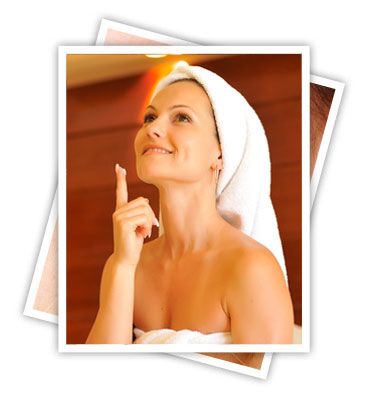It’s amazing that the skin, though it is man’s largest organ, is the one that we don’t pay too much attention to. Admittedly, a lot of people (most particularly women), fuss over the skin on their face, but do not spend even a fraction of the time on the skin on other parts of the body.
Taking good care of your skin is important, not only because glowing skin is beautiful to behold, but because the skin plays a vital role in our lives. The skin acts as a protective barrier for all our internal organs. We feel warmth and coldness with our skin. It insulates and regulates the temperature of the body and is also one of the major conduits the body uses to excrete waste (in terms of sweat).
Lots of Skin!
The human body has approximately 1.5 – 2.0 square meters worth of surface skin, and although the skin is just about 2-3 mm thick, it is composed of three primary layers.
The first layer of skin is called the epidermis and its main function is to be the first line of defence against infections. Cells called keratinocytes, which are found and produced in the epidermis are responsible for keeping moisture or water in the body.
Just beneath the epidermis is the dermis and blood vessels, nerves, hair follicles, muscles, glands (sweat) and lymphatic tissues can be found in this layer. The dermis is further divided into two parts, the papillary and reticular layers. The papillary layer serves to supply the epidermis with nutrients and this layer is responsible for the prints found on our fingers and feet. The lower layer (reticular) contains most of the glands and is connected to the third layer of skin, called the Hypodermis.
Technically, the hypodermis is no longer part of the skin. The hypodermis is composed of tissue and elastin and these attach the dermis to bone and muscle. Since the hypodermis is composed of 50% fat, the hypodermis pads and insulates the body.
Skin Care
Not many people know but proper skin care involves more than the standard washing with soap and water. To achieve healthy and glowing skin, you must develop a routine that will ensure that your skin will remain clean and hydrated at all times. Skin care experts believe that in order to maintain youthful skin, you should follow these four simple steps:
Cleanse
If you don’t normally put on any make-up, cleaning your face with standard soap and water would be sufficient. But if you have applied any kind of make up, you need to select a cleansing agent that is specifically formulated for your skin type. Those with dry skin should opt for cream or lotion based products, whereas those with predominantly oily skin should use gel or water-based cleansers. If you are prone to breakouts, you should select a cleansing agent that will not aggravate your present skin condition.
When you cleanse, splash your face initially with warm water and then apply the cleansing product (to your hands and gradually build up a lather, or use cotton balls or facial towels) rub your face with gentle upward strokes. Rinse thoroughly with warm water and finally, finish off with a splash of cold water. The same procedure should be applied to the skin on other parts of your body.
Tone
After you have cleansed your skin, some experts will advise you to use a facial toner. A toner removes greasiness left by your makeup and/or by your cleansing agent. Skin toners are usually applied by way of a cotton ball, and the skin should not be vigorously scrubbed. Just like the cleansing agent, you should tone your skin using gentle, upward strokes.
Moisturize
To avoid looking like a cowboy’s sun-exposed leather boots, you should take time to apply moisturizer on your skin everyday. Moisturizers help remove the dull surface skin to expose the fresher and rosier skin below. Just like toners and cleansers, there is a specific moisturizer for your type of skin. If your skin is predominantly dry, your moisturizer should contain oil; moisturizers that are water based and free from oil are those that are made for people with oily skin. If your skin is highly sensitive, your moisturizer should be of the hypo-allergenic kind, one that is free from perfumes or other chemicals that may trigger a breakout. Moisturizers, like your toner and cleanser, should be applied to your skin using gentle, upward strokes.
Protect
Finally, the last step to healthier skin is to protect it from the elements, particularly the harsh ultra-violet rays of the sun. Before you step out of the house, you have to make sure that you apply sunscreen with an SPF rating of at least 10, to the skin that will be exposed to sunlight.
Other Skin Care Tips
Truly beautiful skin is not obtained by merely applying ointments and creams. You have to take care of yourself on the outside and the inside as well.
For your skin to be healthy you need to eat a diet that is rich in vitamins, specifically vitamins A, C, D and E. Foods rich in Vitamin C and E prevent wrinkles and laugh lines, whereas Vitamin A is credited to preventing sun damage. Vitamin C and D, both of which are applied directly to the skin, help skin heal faster.
Apart from having a healthy diet, you should also have a healthy lifestyle. You should try to get as much as 8 hours of sleep every night, and you should find time to get a little exercise daily. A simple 15 – 20 minute walk can do wonders to your health – not just your skin but your general well being.
Glossary
Acne – a skin condition caused by inflammation of the sebaceous glands and hair follicles that result to eruption of pimples. Acne occurs usually on the face.
Dehydration – loss of fluid from the body
Dermatologist – a branch of medicine that focuses on the skin. The term is also used for doctors who specialize on skin conditions.
Pore – a small natural opening on the skin which allows for absorption or transpiration of matter (waste, in the form of sweat, for example)
Sunscreen – also called sun block, sunscreen is a substance (usually in cream form) that protects the skin from the rays of the sun by blocking off ultraviolet (UV) rays
Wrinkles – creases or folds found on a surface, such as the skin. Usually caused by old age (loss or elastin) or by facial movements (laugh lines or crows feet, when one smiles)





